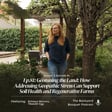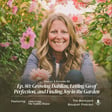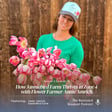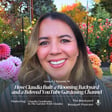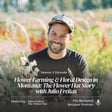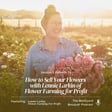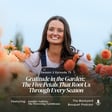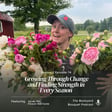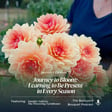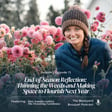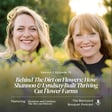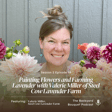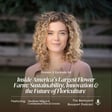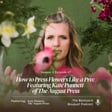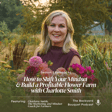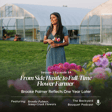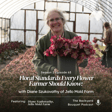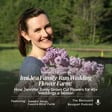
Ep.51: How Jenny Marks Built a Profitable Flower Farm & Helps Others Do the Same
Join us for an inspiring conversation with Jenny Marks, founder of Trademark Farmer and host of Six Figure Flower Farming. Jenny has been immersed in agriculture her entire life, from growing up on a farm to working in government roles with the USDA and State Departments of Agriculture. After starting a vegetable CSA, she discovered that she loved flowers and that they aligned better with the life she wanted to create. Now, she runs a thriving flower farm and teaches others how to build sustainable floral businesses.
In this episode, we discuss:
- How Jenny transitioned from vegetables to flowers
- The biggest business lessons she’s learned in farming
- Why niching down is key to standing out in the market
- How to price flowers with confidence and attract the right customers
- The mindset shifts needed to succeed in flower farming
If you’ve ever dreamed of turning your passion for flowers into a thriving business, this episode is packed with practical insights and motivation!
Show Notes: https://thefloweringfarmhouse.com/2025/03/18/ep-51-how-jenny-marks-created-a-profitable-flower-farm/
🔗 Connect with Jenny Marks:
- Website: https://www.trademarkfarmer.com/
- Instagram: @TrademarkFarmer
- Online Business Course: Six Figure Flower Farming https://www.trademarkfarmer.com/sfff
📌 Please Subscribe to The Backyard Bouquet Podcast for more flower farming insights!
***Rate, Review, & Follow The Backyard Bouquet***
If you enjoyed this episode, will you please consider leaving the podcast a review? Your review helps make the podcast more discoverable to others and allows me to continue creating more episodes. I'd love to know what you enjoyed most about the episode.
New episodes every week to help keep your garden blooming!
🌿 Your Dream Greenhouse Awaits! 🌿
If you've been thinking about adding a greenhouse to your garden or flower farm, now is the perfect time! I've been working with NW Green Panels for over six years, and their high-quality, custom-built greenhouses are truly game-changers for extending the growing season and protecting your plants.
✨ Exclusive Offer for The Backyard Bouquet Podcast Listeners! ✨
Get $750 off PLUS $500 in free accessories OR 5% off your total (whichever is greater)!
🔗 Mention Farmhouse to save $ on your new greenhouse
👉 Design your greenhouse here: https://www.nwgreenpanels.com/
